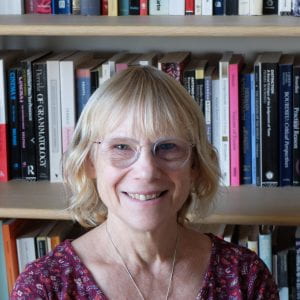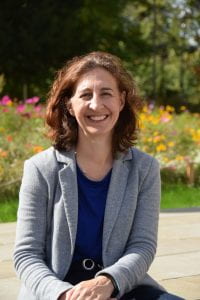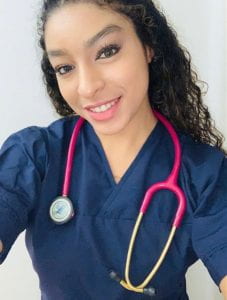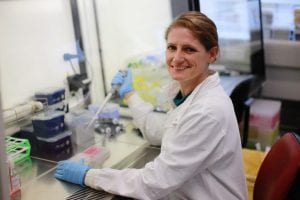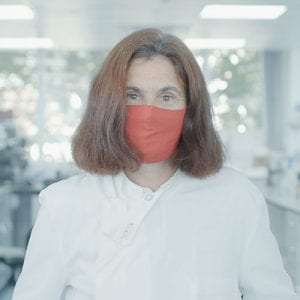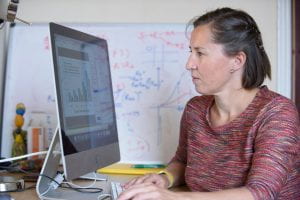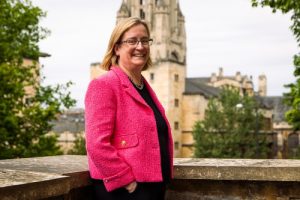
To mark International Women’s Day 2023, the University’s first female Vice-Chancellor Professor Evelyn Welch discusses her own career journey, women who have inspired her, and how we can embrace equity and inclusion as a University. She’s interviewed by Deepshikha Sharma, Co-Chair of the Equality, Diversity and Inclusion group in the Division of Research, Enterprise and Innovation (DREI).
Evelyn, your appointment to the University of Bristol is a testament that as much as STEM opens a world of opportunities for careers, so does Arts. Simultaneously, it also inspires and guides everyone including the parents and their children, particularly female gender about career choices outside of STEM. Please could you shed a little light on your journey?
Thank you, and thank you for doing this. It is very important that we celebrate International Women’s Day, recognising that every day, not just one day, belongs to women.
How do the choices we make – inside or outside STEM – impact on our career choices? Well, I am American in origin and my family were great believers that education was the route to long-term success, whatever you studied. My grandfather was a postman in Galveston Texas and my parents met at Harvard, and I went to Harvard as well. High-quality institutions open doors to many possibilities and opportunities. American universities ask you to take a range of courses in your first year. I went to university expecting to study pre-Med. I expected to study the sciences and expected to have a professional career which was a secure route to employment. Once there, however, I got hooked by the humanities.
This wouldn’t have been possible in the UK which I regret. You don’t really know necessarily what your passion is when you are 17 or 18. If you close things down too early you miss out on the opportunity to be investigative, curious and explorative. I ended up studying Renaissance History and Literature (not Chemistry) and eventually completed my PhD in the same area at the University of London. That wouldn’t have been possible if I had been forced to choose between disciplines when I was much younger.
Is there a woman who has influenced your career path and how?
A whole range of women have influenced me, from my grandmother to my mother. In my professional career, Professor Lisa Jardine, an extraordinary Professor of Renaissance Studies at Queen Mary University of London, was one of my most important mentors. She was very supportive of female early career academics. She helped me in so many ways. For example, if she couldn’t make a media appearance, conferences or other opportunities, she would pass them onto me and to other women. She used her high profile to help share the ladder rather than pulling the ladder up behind her. Sadly, she passed away of cancer, but not a week goes by without my missing her or thinking of how much she would have enjoyed seeing so many women now in positions where we too can make a difference in academia.
What career advice have you received that has been particularly valuable to you?
Lisa gave me two pieces of very practical advice. One was never to arrive at an interview with a bag because you end up looking for a place to put it down as you arrive and settle in your chair. Leave everything behind and walk in with a few notes so you can look everyone in the eye and make that crucial first impression. Secondly, she was often the only woman in the room, before any meeting started, so she would say something to ensure people heard her voice, whether this was asking for a glass of water or to open a window. It ensures people become accustomed to a different tone of voice and your presence. It’s rare now to be the only woman in a room but sometimes it is the simplest things that make a difference!
What advice would you give to other women seeking to climb the leadership ladder?
I would offer two or three pieces of basic advice. One is to be a leader wherever you are. Despite the hierarchy of university structure, you can make a positive impact wherever you are. There are some important change-makers who do not have formal leadership positions but are immensely influential. But if you do want to get into formal leadership, learn how to do it properly. Leadership comes in many forms and it is not innate. Learn project management, time management, communication, and presentation skills. The University of Bristol offers fantastic programmes in leadership and I would commend them to anyone who wants to lead or manage at any level.
Finally, and a bit more controversial – people talk a lot about work life balance and how to say no. This is very important, but you also have to be open to say yes and, just sometimes, to push yourself to take on that little bit more in order to stretch your skills, abilities and confidence. But if you volunteer for a new task, it is only worth doing once or perhaps twice. If you are asked to do it for a third time, pass the opportunity to learn a new skill onto somebody else.
This International Women’s Day theme is ‘Embrace equity’. We have come far from the traditional outlook towards women but perceptions of women at work and some business practices make it difficult for women to participate and achieve true inclusion and success. For example, late evening wine and dine networking events automatically preclude women in the workplace because of parental care, childcare etc. How do you think we can embrace equity and inclusion within the University?
The key to embracing equity and inclusion is both an appreciation of the benefits of diversity and being thoughtful about the multiplicity of needs everyone has at work and at home. Childcare is predominantly done by women, but not always. Our arrangements for parental and adoption leave need to be as generous as those for maternity leave. It is important to have a range of ways and times of the day and week for social occasions so that we don’t inadvertently exclude anyone from a sense of belonging. It is certainly harder for managers to organise multiple events but it is important to ensure everyone has a voice and feels a part of the community and their contributions are recognised.
I hold a monthly VC surgery; people come and tell me about the most interesting things about their lives at Bristol. One individual described their role, noting that while they made an important contribution to the academic community, they were never invited to Faculty parties or events. This was quickly fixed but it was important to recognise that we may accidentally, rather than deliberately, exclude some colleagues.
Women in senior and leadership positions is a recent phenomenon, largely viewed as for the few, not the many. Whilst we certainly have made progress, what actions can we take to make senior roles more inclusive?
Things have really changed since I started in Higher Education. Today just over 25% of the top 200 global institutions listed in the Times Higher are led by women. From next Autumn, Oxford, Cambridge, Bristol, Durham, Nottingham, Manchester and Cardiff will all be led by women. But it is important to note that in the United Kingdom we are all white women. Harvard is now led by a Black woman and that gives me great hope that we will not just see greater strides in gender diversity in my lifetime but also in terms of race and ethnicity. We need to use the determination that we are putting into achieving gender equity to ensure that we are similarly supportive of colleagues from Black, Asian and Minority Ethnic backgrounds going forward.

A massive thanks to our new Vice-Chancellor, Professor Evelyn Welch, for this interview. Above all, my takeaway from this interview is that Evelyn embodies the ethos of university and I hope it leaves everyone as it has left me: inspired, refreshed and on a lookout for our own Lisa! She is the epitome of an empowered woman who is dedicated to empowering others, and she does so with grace, elegance and intelligence. We cannot wait to see the new developments we achieve together and under her new leadership.
By Deepshikha Sharma, Co-Chair of the Equality, Diversity and Inclusion group in the Division of Research, Enterprise and Innovation (DREI).

